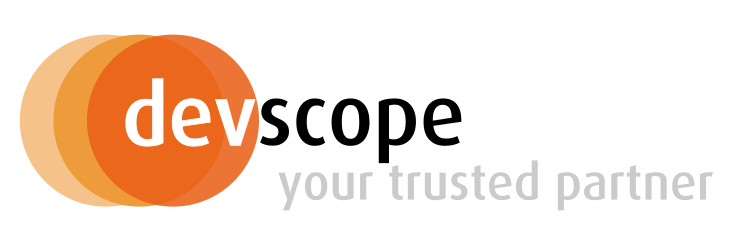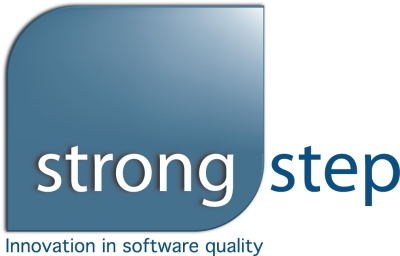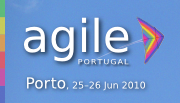With the 2010 edition of Agile Portugal dimming into the past, and the 2011 edition approaching, there is something we would like to say to all of you, who have become part of this community during this last year:

PS: You may check flickr for the 2010 conference photos.
January 23rd, 2011 in
General |
Comments Off on 2010 is behind us, 2011 ahead
We’ve just learned that tomorrow’s XP Game tutorial will feature a prize of 6 Microsoft Arc Mouses.
Teams will have 4 to 6 persons, and all the participants should attend the XP Game talk that will happen before it, and in which the rules will be explained.
June 25th, 2010 in
General |
Comments Off on XP Game Prize
The official Agile Portugal 2010 Pocket Guide is now available for download. Just check the sidebar!
This portable guide contains all you need to know about the event, program, keynotes, talks, venue and how get around.
If you are attending Agile Portugal 2010, a printed copy of the pocket guide will be supplied to you.
June 22nd, 2010 in
General |
Comments Off on Agile Portugal 2010 Official Pocket Guide is now available!
We are maintaining two iCal calendars, that we will keep constantly updated. We leave you the URLs, in case you’d like to subscribe to any of them:
 The conference schedule including all the sessions except the Open Space ones, which will be put together by the participants themselves.
The conference schedule including all the sessions except the Open Space ones, which will be put together by the participants themselves.
 A set of related events, which will happen close to Porto around the same time as Agile Portugal. You may read more about them on the venue page.
A set of related events, which will happen close to Porto around the same time as Agile Portugal. You may read more about them on the venue page.
June 20th, 2010 in
General |
Comments Off on Schedule & related events available as iCal
The program schedule is now as final as it will ever be in an agile conference! :-)
We expect to open the Open Space wiki really soon, where you will be able to organize your own Open Space sessions, and where the Lightning-Talks schedule will take form.
We have also to announce that, by request of some participants, Joseph Yoder and Lachlan Heasman, in collaboration with Agile Portugal 2010, are offering a last-minute set of half-day and one-day workshops, to individuals or companies willing to have an intensive training session on specific topics.
If you are interested on attending these pre-conference workshops, please contact us!
We are offering special discounts for Agile Portugal 2010 participants and groups.
Get prepared for a great conference!
See you soon!
June 18th, 2010 in
General |
Comments Off on Program and Pre-conference Workshops
We have extended the registration deadline until the 23rd of June. This means you still have a couple of days to register for the very first edition of Agile Portugal! At this moment, there is less than a dozen tickets left at the box office.
June 18th, 2010 in
General |
Comments Off on Registration deadline extension
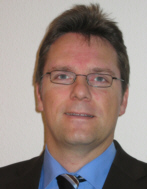
Nicolai Josuttis is an independent system architect, technical manager, author, and consultant. He designs mid-sized and large software systems for the telecommunication, traffic, finance, and manufacturing industries.
He is well known both in the SOA and C++ Community and to attendees at various conferences. He not only speaks and writes with authority (being the author of “SOA in Practice”, “The C++ Standard Library” and “C++ Templates”) but is also an innovative presenter.
Together with Jutta Eckstein he is a partner of
IT-communication.com, two world-leading experts for the successful realization of large and distributed IT projects in practice.
Greetings, Nicolai. Thank you for taking some time to answer our questions. We are eager to hear about your experiences and lessons learned with SOA and coping with the agile way. We were hoping you could lift the veil a little bit just to tease the audience…
1. Service Oriented Architecture (SOA). It has been a hot-topic for some time now. In your view, has the trend become a full-fledged adopted solution or will it be just another “slowly fading away” fad?
Well, there is some disillusionment right now, so that a lot of people are disappointed about SOA. One reason is, that there is no clear definition of SOA and that a lot of people and companies just used the term because it sells well. So, I am not sure about the term, but I am pretty sure that the concept behind the term (at least according to my understanding) will remain. It will remain because the principles of SOA deal with the requirements of globalization in IT. We are moving from system development to the maintenance of system landscapes, where system development is only a part of. SOA provides principles for this need. For example, SOA accepts heterogeneity instead of fighting for harmonization. Harmonization is good, but in a global world requiring harmonization (common platforms, common data models, etc.) is not an option.
2. SOAP or REST?
The REST community claims that RESTful HTTP is a better approach for the utilization of HTTP. And yes, the fact that the native HTTP calls GET, PUT, and DELETE are idempotent so that in the Internet some caching and retry mechanisms are possible, is utilized with REST but not with SOAP (which uses only HTTP POST). On the other hand, as far as I know significant requirements of a sophisticated SOA landscape are not provided with REST. For example, we still have a variety of payload formats and there is no support for end-to-end security. So, REST might be better, but this is just a minor technical detail in system landscapes where you want to realize distributed business processes. I’d still prefer Web Services, if interoperability is the goal, but for specific connections REST might be a better option. And I see a significant risk of technical-driven interfaces, when people only care for REST. Something, which is definitely the opposite of the idea of SOA.
3. “Agile embraces change, SOA embraces heterogeneous systems”. Is this the strongest parallel between the two or are there others?
It is one analogy that might explain why SOA is to some extend as revolutionary as agility. Too long we thought we have to fight against these constantly changing requirements until we (or at least some smart guys) accepted that changes even during development are natural. And too long some people claimed that it is a good approach to have one model, one platform, one programming language, one ESB, etc. But that doesn’t scale. There will be a system size where all these “one fits all”-concepts are not an option. Period. End of discussion.But there are more common things in agility and SOA. In the SOA manifesto you will find a lot of agile requirements. For example, you can only introduce a service-oriented approach step-by-step (iteratively).
4. Can SOA and Agility co-exist?
They can and they have to. The agile value system is necessary for the establishment and realization of SOA, because to some extend, SOA uses agile principles in a more complex context. You have multiple projects running at the same time, with different virtual teams and multiple product owners involved. Without agile principles you are lost in SOA.
5. In your talk at Agile Portugal, you will address the organizational structure and culture suitable for distributed development. How is the readiness of companies when adopting SOA?
The biggest problem is that almost nobody has a clue, what SOA really is about and what a fundamental strategic approach this is. SOA is sold by technical people, who prefer Web Services or REST, or it is sold by vendors, who want to benefit from the hype, but almost nobody has a clue about the real business case of SOA. We talk about a concept that handles the problem of distribution. But distribution is very very expensive. One key element is collaboration. To realize a solution in multiple systems and teams, you have to work together. From the beginning (design) to the end (common distributed test data). That’s really hard and you might find out that in your enterprise culture you are not able to work together. You will give SOA the fault, but your problem is that you are not able to see the big picture of a problem and collaborate with others. Now, decide on your own: Is your company ready for SOA?
6. From your experience with large distributed systems, what was the hardest agile principle to uphold?
This is a tough question. Going through the principles I tend to give different answers:
- Of course, due to the distribution of system landscapes you have the usual problems with face-to-face communication and trust (Jutta Eckstein is the better expert here).
- Then, early delivery is hard to reach in a distributed system. The first business process using an SOA approach might take 3 to 6 months.
- But may be my final answer is simplicity. There are so many good ideas for a sophistic versioning of interfaces that you don’t see the easy simple way: Each change of a service in production is a new version (independent from its backward compatibility). There are so many tools available that make things more complex. There are so many strange ideas of what an enterprise service bus should be. People don’t start simple and don’t take their time to start simple. In the long term, a lack of simplicity is usually a recipe for a disaster.
7. Can you give us a glimpse on how will things evolve regarding SOA in the near future?
Because we can’t stop globalization, the principles will remain.But due to wrong and broken promises the name “SOA” might be a problem. So, the term might fade away but the concepts will stay. A typical request to me as a consultant these days is: “We need help, but please don’t call it SOA, because we are not allowed to use this term any longer.” The common term right now is “integration architecture”. And, by the way, neither cloud computing nor event-driven architecture are a new or better SOA. The concept of a service is in both ideas, but in very different contexts.
Nicolai, thank you again for your time. See you on June 25th!
June 14th, 2010 in
Interviews |
Comments Off on Interview: Nicolai Josuttis
Help us spread the word about how awesome Agile Portugal will be, and win a (golden) full two-day ticket!
How does it work?
Add a like to our post about the contest on Facebook, or re-tweet the similar post on Twitter. By June 19th we will randomly draw the big winner!
Can I add a like to the post on Facebook AND re-tweet it on Twitter?
Sure, and you’ll be doubling your chances to win.
But, I’ve already registered!
If that’s the case, you’ll be entitled to a reimbursement if you win.
Something is still not clear to me
If you have any doubts, please contact us at chairs@agilept.org.
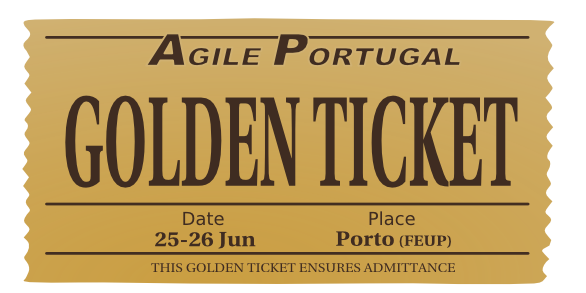
June 8th, 2010 in
General |
Comments Off on The Golden Ticket Contest
June 5th is approaching! This means you still have a day left to submit your Session Proposal or get the Early Registration fee.
June 4th, 2010 in
General |
Comments Off on Deadlines approaching
Registration for Agile Portugal 2010 is now open. Please remind there’s an early registration discount of 20% valid until 5th June. We hope to meet you in Porto.
May 28th, 2010 in
General |
Comments Off on Registrations are now open



























